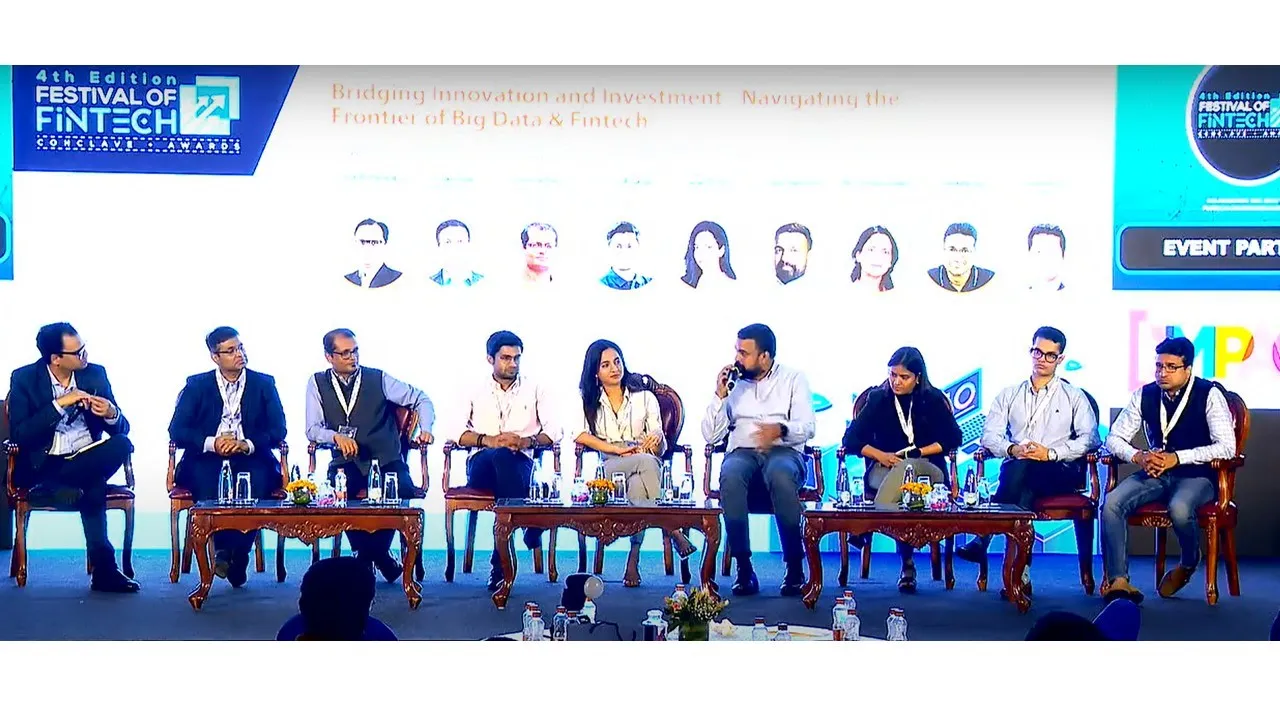
In the dynamic realm of modern finance, the fusion of big data with fintech represents a pivotal shift. Technologies such as AI, blockchain and machine learning are not just enhancing efficiency and security but are fundamentally altering how financial services operate.
This convergence marks a significant departure from traditional paradigms, ushering in an era where data integrity and agile operations dictate success. What is the transformative impact of these innovations on the financial sector, their implications and the strategic imperatives for navigating this evolving landscape of innovation and finance?
Shrikant Patil, Chief Executive Officer and Managing Director, DigiAlly, addressed the two major challenges faced by lenders. The first challenge is managing Non-Performing Assets (NPAs) and the second is achieving efficiency to foster growth. He highlights the significant opportunities in the SME sector, noting that there is a global financing gap of around $10 trillion for SMEs, with at least a $1 trillion gap in India alone. Patil emphasises the need to not only solve the NPA problem but also to enhance efficiency, which will, in turn, create opportunities for scaling the business.
India’s Fintech Innovations
Bhushan Patil, Founder and Investor, Multiply Ventures, emphasised several key points about the fintech landscape in India. He talked about the significant generational changes that are shaping what he refers to as India’s first fintech innovation. Profitability has become a crucial focus because stakeholders are increasingly concerned with financial returns and asking, “Where is the money?” Digitisation is another critical factor, driving the need for innovative solutions to include embedded distribution. Over the past five to ten years, many fintech companies have adopted both B2B and B2C channels. However, before 2015, the focus was predominantly on B2C, with heavy spending to attract consumers. Additionally, he highlights the growing importance of cross-border fintech activities.
Vishnu Acharya, Partner, Marsshot.vc, said that over the last decade, India has become one of the top countries in terms of digital transactions. Acharya added, “This rapid growth has put significant pressure on the existing systems. What makes India unique is its indigenous digital payment architecture, like UPI. As the digital transaction landscape evolves, there will be a need for system changes. Traditional models, such as VisionPLUS, will need to adapt. This evolving landscape presents opportunities for entrepreneurs and investors to engage and innovate within this sector.”
Tessa Thomas, Investments Lead, Corporate Development and Flipkart Ventures, Flipkart, shared insights into the company’s focus areas and strategic vision. “At Flipkart, we are deeply involved in the B2C and fintech sectors, continuously working on innovative solutions to meet the evolving needs of our customers. We firmly believe that building robust infrastructure is crucial, as it serves as the essential backbone enabling fintech businesses to scale efficiently. Additionally, in wealth management, we are exploring the immense potential of artificial intelligence to provide a more personalised experience for investors. By leveraging AI, we aim to deliver highly customised financial advice and services that cater to individual preferences and goals, ultimately enhancing customer satisfaction and engagement.”
Strategic Investment Practices In Evolving Ecosystem
Joseph Sebastian, an Investor at Blume Ventures, highlights India’s distinct market dynamics. He notes that actual revenue generation faces constraints due to current incentives. As the economy matures, asset preferences evolve, mirroring shifts from offline to online consumer behaviour. Sebastian points out that India diverges from established growth patterns seen in other economies, particularly in its financial sector dynamics.
Anuradha Aggrawal, General Partner, Dexter Ventures, emphasises a shift in investor mindset: “It’s less about demanding profitability, it’s more about not funding up in the air.” She highlights fintech’s sensitivity to regulatory changes, noting, “Fintech is one of those areas where you cannot be insulated.” At Dexter Ventures, she finds excitement in models addressing access issues in India’s ecosystem, focusing on both customer and business lending sides.
Vivek Banka, Founder of GoalTeller, emphasised that investors who focus solely on fleeting trends are likely missing out on opportunities. They highlight the growing importance of convenience in the Indian investment scene, where embedded strategies are proving successful. Today’s investors are not only interested in financial returns but also in the gamification aspects of investing. They are increasingly well-informed and rely heavily on research, leveraging tools such as stock broker apps to enhance their decision-making processes.
Future Roadmap and Predictions
Shahan Sud, Senior Investment Manager at Jafco Asia, describes the current global environment as excessively focused on quality. Over the last three months, there has been a noticeable increase in economically distressed areas within the country. While non-performing loan levels remain controlled at present, Sud anticipates potential credit events in the future. He notes a rapid expansion in the corporate bond market, facilitated by the rise of online platforms. Despite this growth, there is a scarcity of accessible literature on corporate bonds, posing challenges for debt investment. Looking ahead, Sud predicts a significant expansion in MSME credit over the next two to three years.
This panel discussion was taking place at BW Businesswordl’s Festival Of Fintech 2024 dissects the transformative impact of these advancements on the financial sector’s data landscape, highlighting how they are driving efficiency, enhancing security and opening new avenues for investment. The panel was moderated by Sharat Chandra, Founder, EmpowerEdge Ventures.
